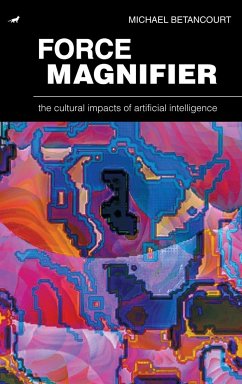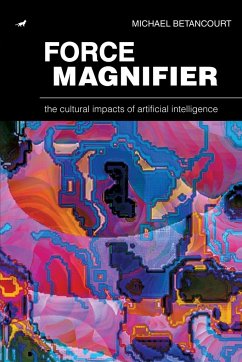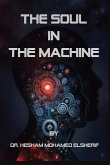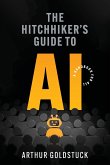"What exactly does AI automate?" Betancourt begins with the obvious answer, 'human labor,' and ends with the nature of value created in capitalism. His analysis was written for a lecture at the Aspen Institute-Germany's Third Annual Berlin AI Conference, "Humanity Enabled: AI & the Great Economic Awakening" in March, 2020. The 'great decoupling' of labor from productivity and value suggests the potential for a post-labor economy, and the expansion of the 'society of leisure' formerly reserved for only the dominant social classes. This book concerns the social, cultural, and economic barriers to the development of a fairer, egalitarian, and more democratic society in terms of a broad, kaleidoscopic array of tendencies including the gamification of social activity by social credit, the role of marketing in popular media, the authoritarian usurpation of democracy in the smart city, and the proposal of universal basic income as a palliative for the replacement of human labor by machinery. Opposition to the emergence of the 'society of leisure' is not economic but cultural, a confluence of religious and social prohibitions on leisure that simultaneously devalue, demonize, and disenfranchise labor: this emergent conflict is the cultural significance of AI. About the author: Michael Betancourt is a critical theorist and research artist whose work is concerned with the cultural impacts of digital technology and capitalist ideology. He has written more than thirty books, including The Critique of Digital Capitalism, The Digital Agent versus Human Agency, The History of Motion Graphics, and Glitch Art in Theory and Practice. His writing has been translated into Chinese, French, German, Greek, Italian, Japanese, Persian, Portuguese, and Spanish. These publications complement his movies, which have been screened internationally in art fairs, film festivals, and museums.
Hinweis: Dieser Artikel kann nur an eine deutsche Lieferadresse ausgeliefert werden.
Hinweis: Dieser Artikel kann nur an eine deutsche Lieferadresse ausgeliefert werden.








